At one point or another, us dog owners have probably looked up what foods are safe for our dogs, right? There’s a lot of information out there about what dogs can’t eat. But there are plenty of human foods dogs can eat that are not only safe but also good for them!
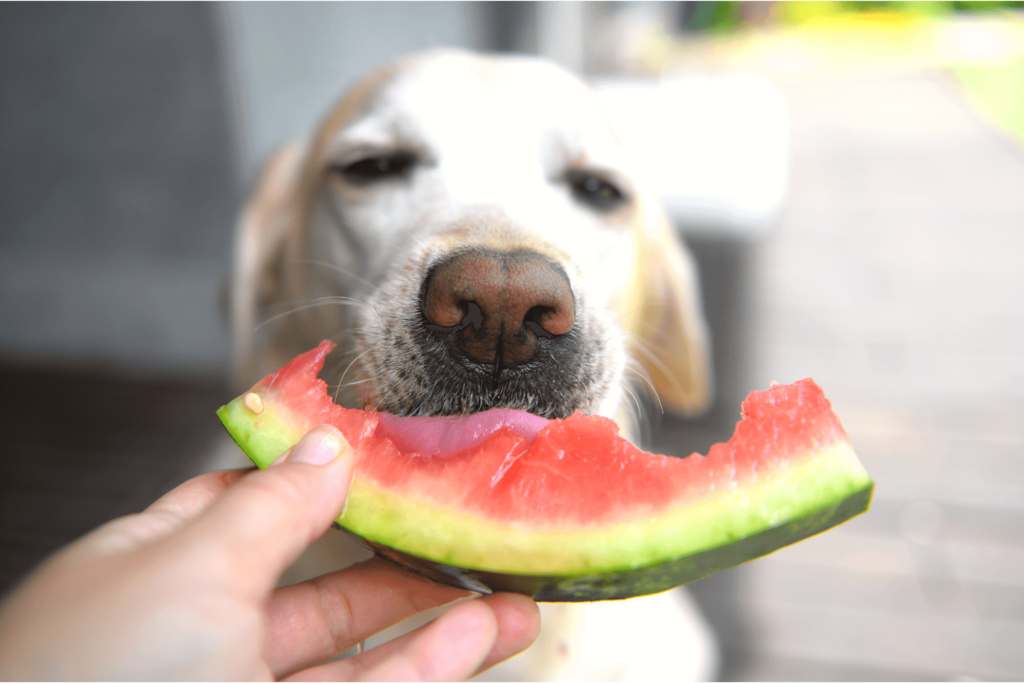
We all want the absolute best for our pups, so which human foods are going to be both nutritious and deliciously appetizing for our dogs? Take a look at the list of 10 common pet parent foods we can happily and safely feed our dogs:
Let’s talk more about each of these healthy human foods dogs can eat!
Pumpkin
A great option for pooches who need a digestive system reset is pumpkin! No, not pumpkin pie but just plain pumpkin without any sweeteners or spices.
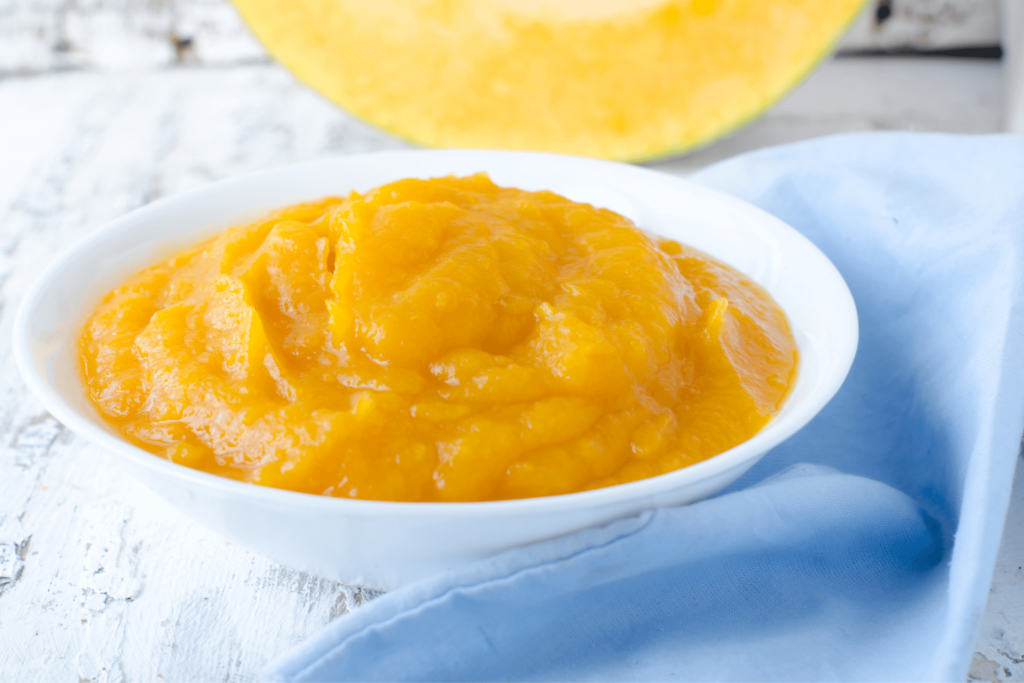
Many people find that a few teaspoons of pumpkin help regulate their dog’s bowel movements. (Pets WebMD) If your dog has diarrhea, the additional fiber intake from pumpkin is especially beneficial. Remember, though, that there is such a thing as too much of a good thing! Too much fiber can cause your dog to be constipated.
Fresh, cooked pumpkin, or canned pumpkin are the best options to give to our dogs as long as it’s plain and without added sugars or spices. In addition to its high fiber content, pumpkin is a great source of vitamin A as well. Vitamin A is known to be an important element for a dog’s growth, vision, and skin health.
Eggs
According to Dogs Naturally Magazine, eggs are an excellent source of protein for dogs, and they have tons of other nutrients, too, like riboflavin, folate, iron, fatty acids, and Vitamin B12, and that’s only naming a few!
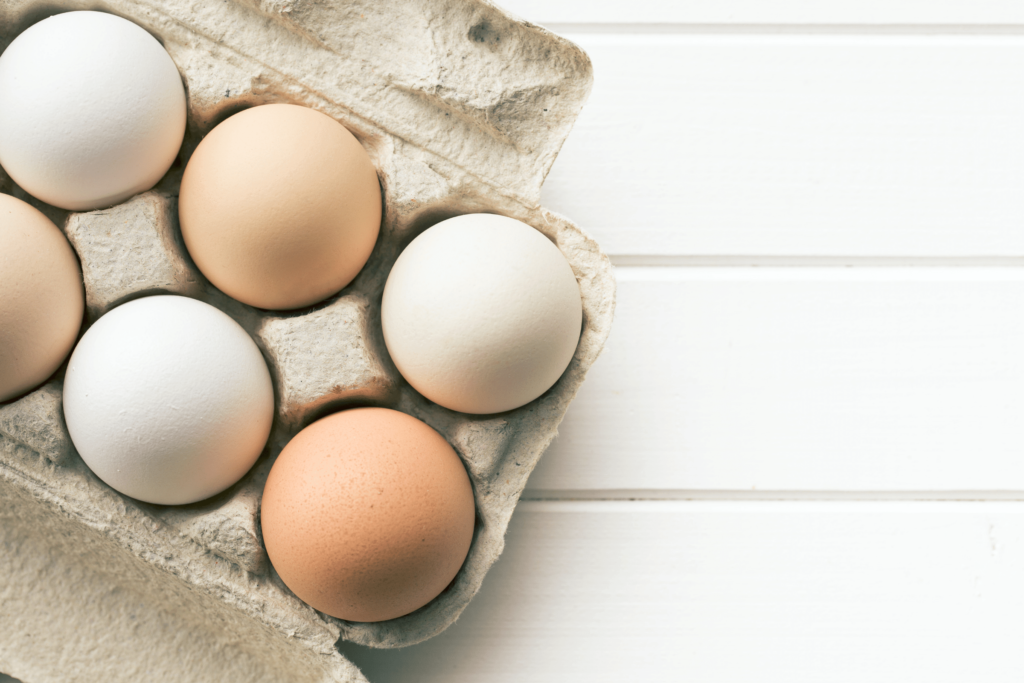
Just like humans, dogs can eat eggs prepared in just about any way. Scrambled, poached, you name it. If the eggs are not prepared with any spices, eggs are a great option for dogs. They can even eat them raw – eggshells and all! It’s suggested that you grind up the eggshells though so your dog doesn’t swallow sharp chunks that might cause harm or pose a choking hazard.
When the shell is also given to a dog, the dog will get all the benefits found in the shell’s membrane, which contains collagen, chondroitin, hyaluronic acid, and glucosamine. Chondroitin and glucosamine are especially powerful ingredients for fighting joint pain. Be aware that raw eggs can pose a risk of salmonella for humans so just make sure to wash your dog’s food bowl after feeding your dog raw eggs and wash your hands thoroughly.
Oatmeal
Cooked oatmeal is a great option for dogs with wheat or grain sensitivities or allergies. Best of all, it contains some excellent nutrients, too!
For these reasons, you’ll often see it used as an ingredient in store-bought dog food. Oatmeal contains vitamin B, which is known to help maintain a healthy coat. Linoleic acid, an omega-six fatty acid, is known for its benefits that promote the health of the dog’s skin. (AKC)
You’ll want to prepare the oats with water since most dogs can’t tolerate milk in larger quantities. It should be cooked plain with no sweeteners like sugar or brown sugar. Though it may look like a fun crunchy topper to add to your dog’s food, raw oatmeal is a little bit too difficult for pups to digest.
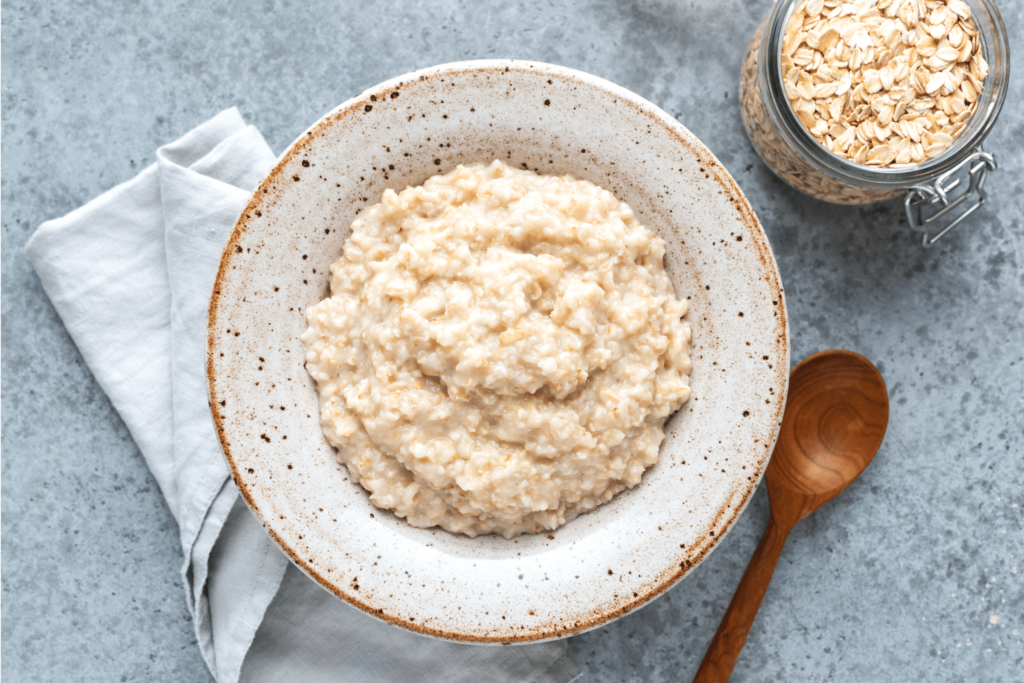
It’s best to avoid instant oatmeal, as the nutritional benefits do decrease somewhat compared to regular oatmeal. Oatmeal made from 100% whole grains is the best option for our pups.
You can also give your dogs oats as an ingredient in dog treats, like this 2-ingredient homemade dog treat recipe! [link]
Carrots
Carrots make a really great snack option for your dog. They work especially well as training treats. They may not be as enticing as a stinky hot dog, but most dogs get excited and want to work for the crunchy treat.
One of the great things about carrots is that they contain a good amount of fiber which can help aid your dog’s digestion. They contain vitamin A and potassium as well. Best of all, they are low-calorie! (RedBarn)

Carrots can be chopped and provided raw to your dog as treats, or you can soften the carrots by steaming them and mix them in with their food. Whole carrots can actually make a great chew too! Take a whole carrot and freeze it before giving it to your pup. The cold will help provide relief to teething puppies, and a frozen carrot can help older dogs keep their teeth clean by breaking down the plaque on them! Always be sure to supervise your dog with any chew to reduce the risk of choking hazards.
Chicken
Of course, we can’t forget about chicken, one of the staple ingredients in many dog foods. There is a good reason for this, after all! According to the American Kennel Club, chicken is a lean protein that contains healthy fatty acids and vitamin B. It provides an awesome protein boost to help encourage lean muscle but without the additional calories that other meats might have.
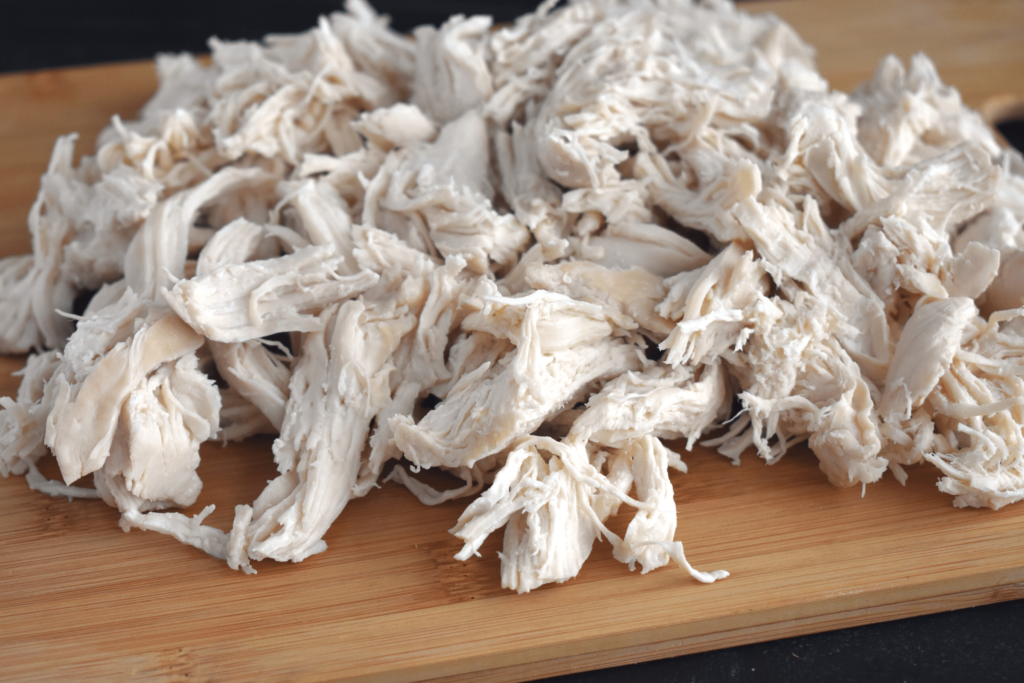
Chicken can be prepared for pups in several ways, including roasting, baking, poaching, or grilling. Just no seasonings! They’ll like it plain just fine.
Skinless, boneless chicken breast is best. Make sure you never give your dog cooked chicken bones or any cooked bones, for that matter. Cooked bones can easily splinter and cause a dog to choke or cause significant damage to its gastrointestinal system.
Some dogs do have an allergy to chicken [link to chicken allergy article] (that can even develop after years of eating the same chicken-based dog food), so be sure to keep an eye out for signs of a food allergy including itchy skin, obsessive licking, diarrhea, and more.
Watermelon
According to Reader’s Digest, watermelon can be another great treat for our furry friends. However, seedless watermelon is a must since the seeds could cause gastrointestinal upset or even blockages. And just like we cut off and throw away the rinds, dogs shouldn’t eat them either.
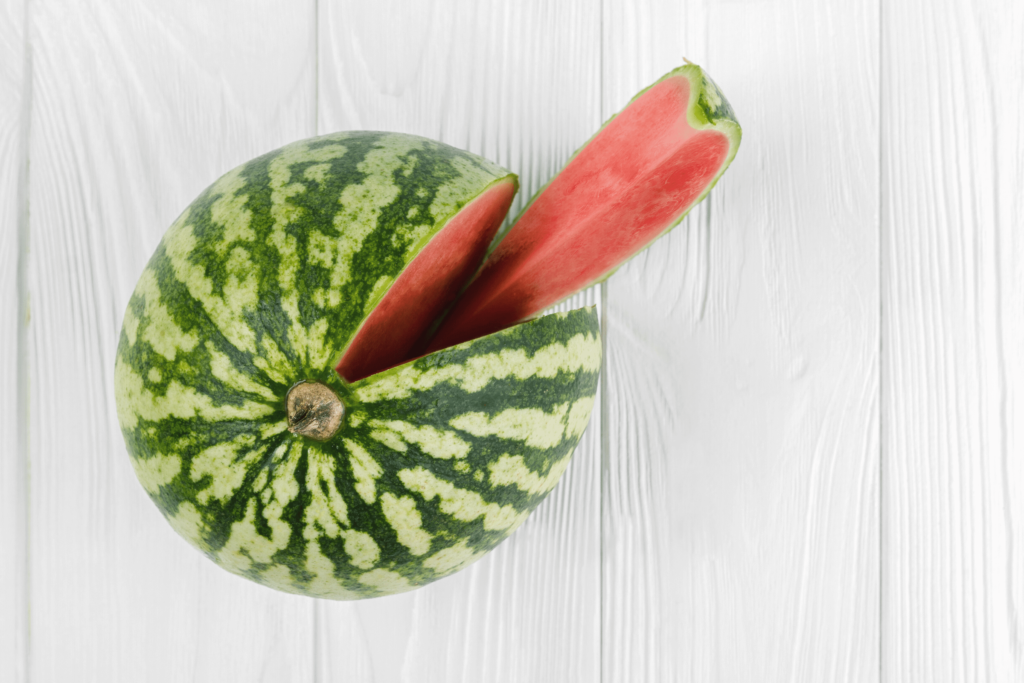
Watermelon has tons of vitamins like vitamin B6, vitamin A, and vitamin C. Plus, watermelon is 92% water, so it’s the perfect treat for a hot day to keep your best bud hydrated!
Green Beans
Even dogs need to eat their vegetables! Green beans are a safe vegetable for our pups, and surprisingly, most dogs find it delicious.
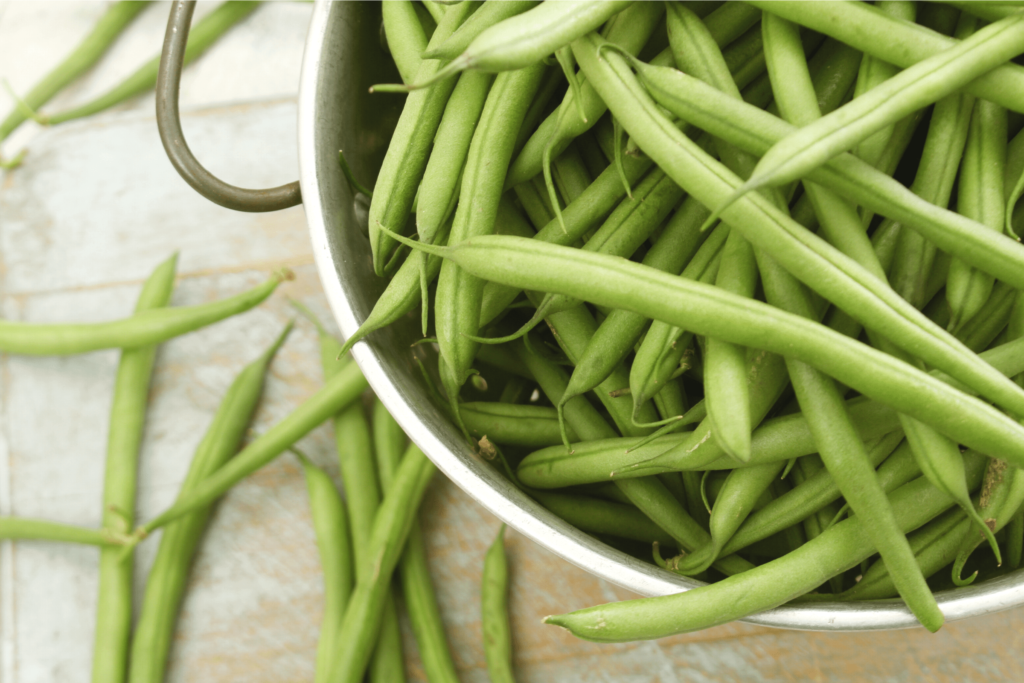
Green beans are incredibly nutritious for dogs, too, thanks to their high vitamin and mineral content. Green beans contain vitamin A, K, and C. Vitamin A is great for growing dogs and maintaining skin and vision health. Vitamin K is super important for the blood clotting process. And vitamin C benefits the immune system. Green beans also have a high iron content which is super important for a dog’s blood and circulatory system. Last but not least, Magnesium is present in green beans which is essential for a dog’s energy production.
Coconut
According to the Puppy Up Foundation, coconut oil or coconut meat is another option that can be given to your dog. Many people have found that coconut oil can be a great mix-in or additive to their dog’s meals. An easily digestible fatty acid called lauric acid is found in coconut oil. It acts as a source of energy and even provides a boost to the immune system so our dogs can fight off infections and viruses.
Lauric acid is also known for its anti-inflammatory benefits, so it can help relieve some pain and discomfort in dogs who might suffer from things like arthritis.
And thanks to its antioxidants, coconut oil can help improve our dog’s skin and coat, making their skin healthy and their coat shiny and smooth.
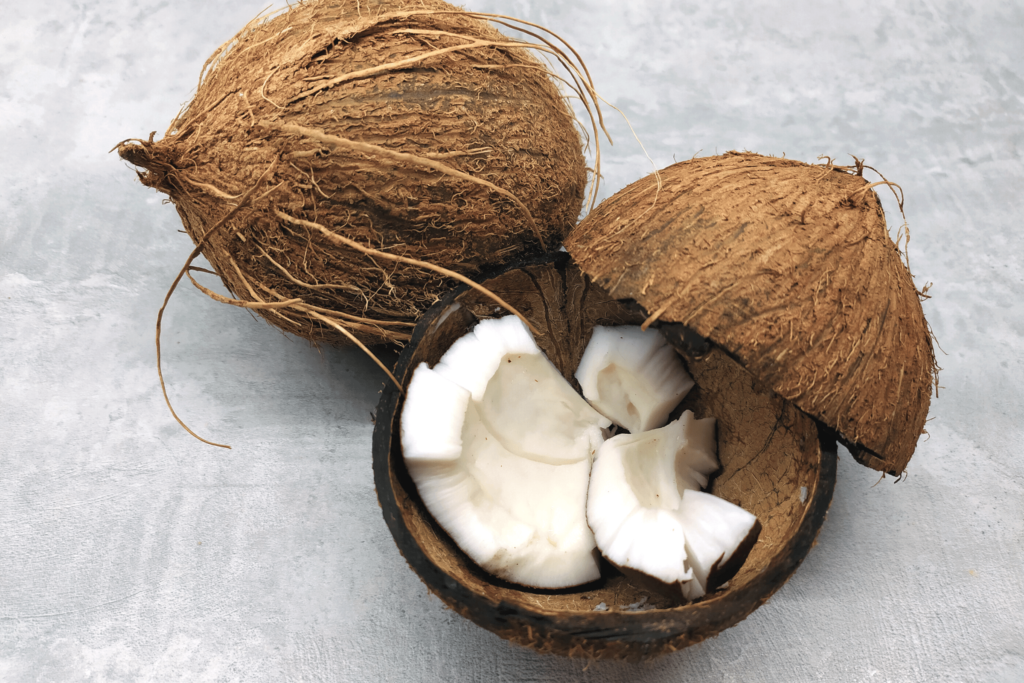
Dogs can get coconut oil one to two times per day though the amounts depend on the size of the dog. For a small dog, ¼ teaspoon is suggested, while for a medium dog, one teaspoon is suggested. Lucky for large dogs, they can get up to a full tablespoon. Coconut oil does have a higher calorie count, so don’t give over the suggested amount.
Blueberries
Blueberries are a low-calorie snack for humans and dogs! They’re loaded with antioxidants and vitamins, so feel free to share them with your best bud.
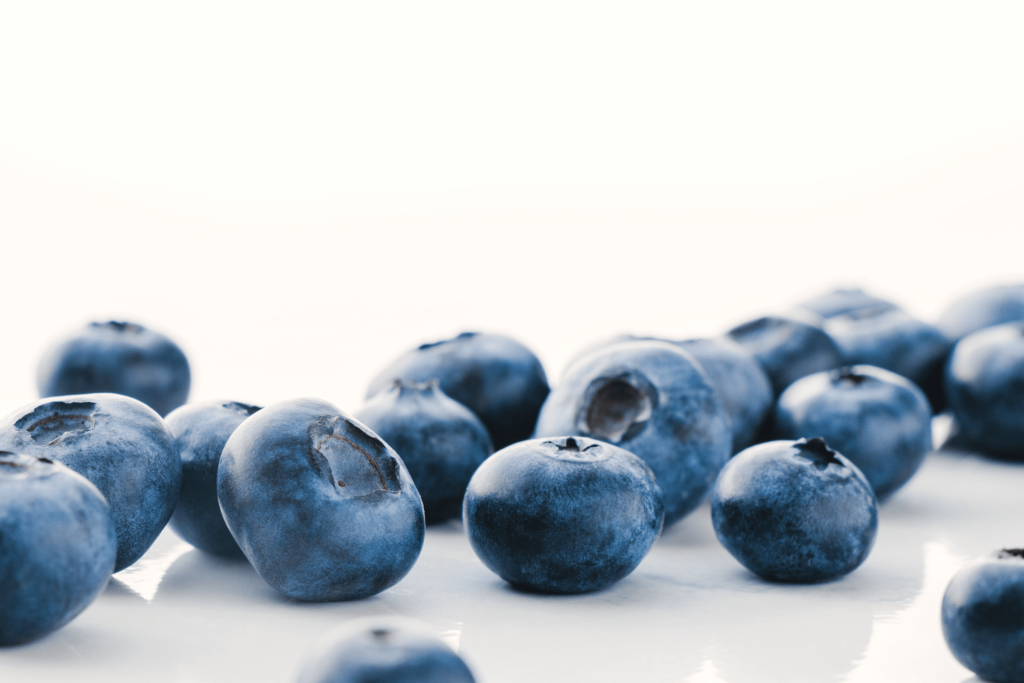
I eat fresh blueberries every morning with my oatmeal (what can I say, I’m a creature of habit!😊) and love to add a few to my dogs’ breakfasts as well.
Frozen blueberries also make a great treat for dogs as they’re fun for your pup to chew but not hard on their teeth like ice. You can even spread mashed blueberries onto a lick mat for some engagement feeding time for your pup.
Peanut Butter
Would this even be a true list of healthy human foods dogs can eat without mentioning peanut butter?
It is well known that peanut butter is a favorite treat for dogs. Many people like to put peanut butter inside of dog chews, so the dog has to work to get the peanut butter out. This can keep your dog occupied for hours!
Some people even try spreading peanut butter on the shower or bathtub walls during bath time to distract the dogs and make it more of a positive experience. This trick works great for our dogs!
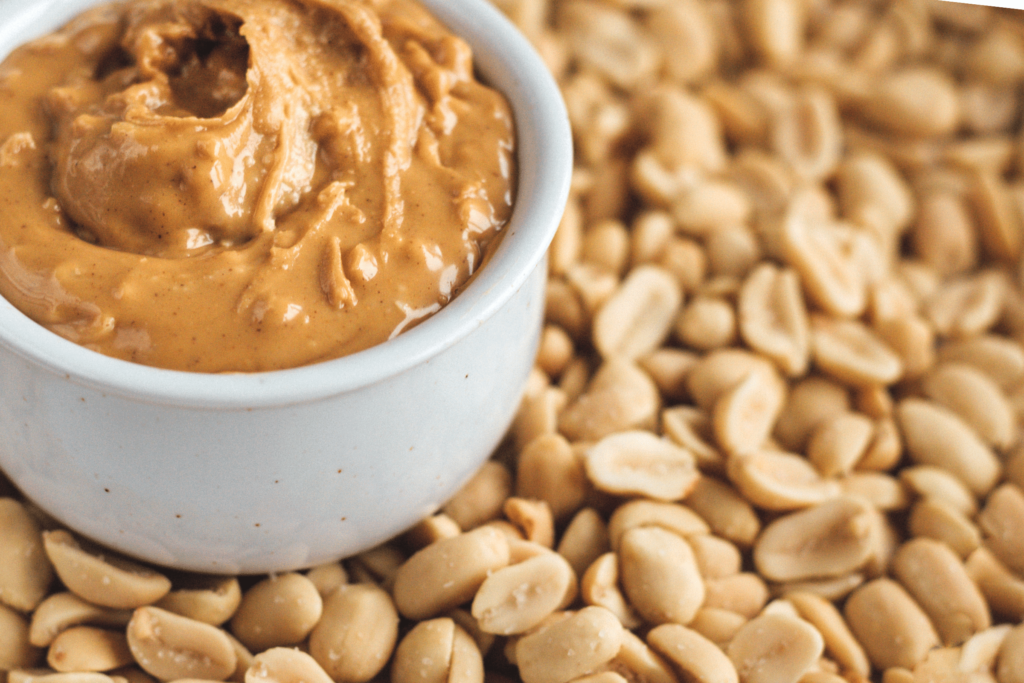
Peanut butter has nutritional benefits, too, like high protein content. It also contains vitamins B and E, which both have great health benefits like promoting healthy metabolisms and improving brain health. (iheartdogs) Some peanut butters contain an ingredient called xylitol. This ingredient can be toxic to dogs so make sure the peanut butter is xylitol-free.
I should mention that while peanut, almond, and cashew butters are non-toxic to dogs in smaller quantities (due to their high fat content), macadamia nuts, walnuts, pistachios, and pecans are not safe for your pup.
Other Human Foods Dogs Can Eat
As always, it’s best to check with the AKC for the full list of human foods dogs can eat. They also have a list of foods that are toxic to dogs as well.
Conclusion
Chances are your dog will love everything on this list (even the green beans!), and you’ll love knowing that your dog is getting some good nutrition. Speaking of green, are you familiar with what plants are safe to have around dogs? You might as well get up to speed on houseplants that are non-toxic to dogs (in addition to human foods) while you’re at it!
So, which of these human foods for dogs are you going to treat your pup to first? Tell me in the comments!
